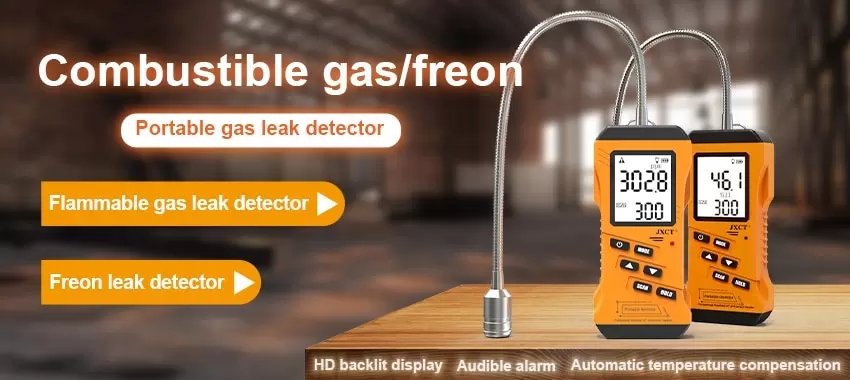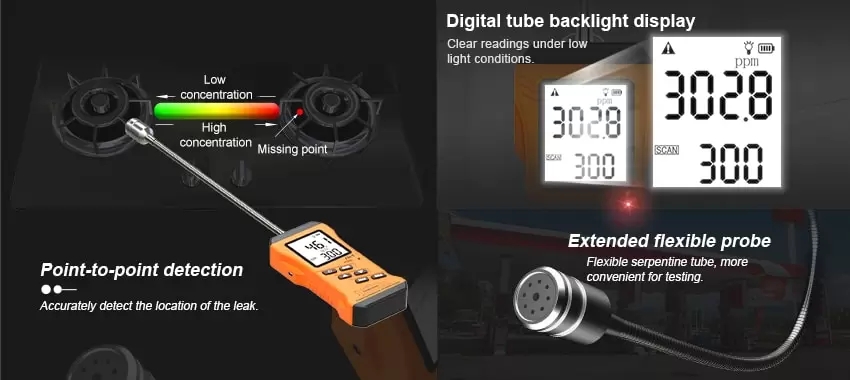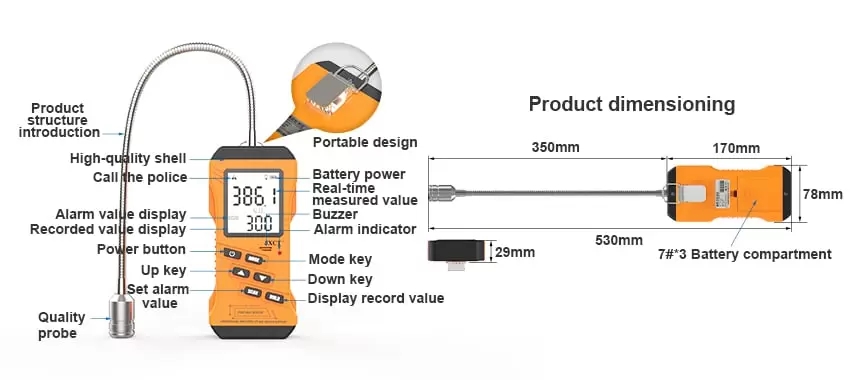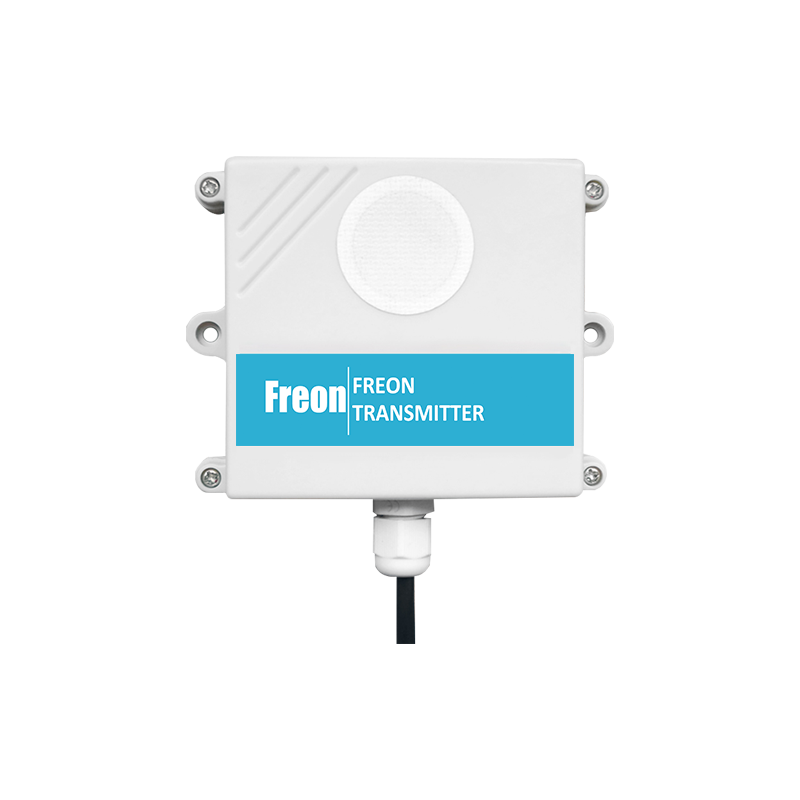A Freon leak detector, also known as a refrigerant leak detector, is a basic device used to identify and locate leaks in cooling systems that use freon or other refrigerants. These detectors actively monitor the air and identify the presence of refrigerant leaks, ensuring the integrity of the system and safeguarding the environment from harmful emissions. With their advanced technology and user-friendly features;Freon leak detectors play a vital role in maintaining the efficiency and safety of cooling systems.

Advantages of Freon leak detectors
One of the main advantages of Freon leak detectors is their ability to accurately detect refrigerant leaks. These leaks are due to faulty connections and damaged components. Freon leak detectors have highly sensitive sensors that can detect even the smallest leaks. They actively sample the air around the cooling system and analyze it for the presence of refrigerant gases. When a leak is detected, the detector immediately notifies individuals through audible and visual alerts, prompting them to take the necessary action to correct the situation.
The Freon leak detector is user-friendly, making installation and operation hassle-free. Many models feature intuitive interfaces, allowing users to easily navigate through menus, adjust settings, and interpret readings. Some detectors even offer built-in displays, providing real-time information on the concentration of refrigerant gases. This enables individuals to identify the severity of the leak and take appropriate steps to rectify it, preventing further damage to the cooling system and minimizing the potential for environmental contamination.

Portability is another key advantage of freon leak detectors. These compact and lightweight devices can be easily carried or moved around, facilitating the detection of leaks in different areas of the cooling system. Whether it is a commercial refrigeration unit, an air conditioning system, or a vehicle’s cooling system, portable freon leak detectors allow individuals to quickly and efficiently locate leaks and address them promptly. This not only prevents the loss of refrigerant but also ensures the optimal performance and longevity of the cooling system.

In addition to leak detection, many freon leak detectors offer additional features to enhance their functionality. For instance, some models can measure the concentration of refrigerant gases, providing users with quantitative data about the leak. This information is valuable in assessing the severity of the leak and determining the appropriate course of action. Additionally, some detectors can record and store leak data, allowing for analysis and trend monitoring over time. These advanced features enable users to proactively address potential issues before they escalate into larger problems.
Regular calibration and maintenance are essential for ensuring accurate and reliable performance of freon leak detectors. Manufacturers provide guidelines on calibration intervals and routine maintenance checks to guarantee optimal functionality. Adhering to these recommendations is crucial in obtaining precise leak detection results and reducing the risk of false alarms or undetected leaks. Proper maintenance also extends the lifespan of the detectors, ensuring their long-term effectiveness.
In conclusion, freon leak detectors are vital devices that protect cooling systems from harmful refrigerant leaks. The detector’s precise detection capabilities, user-friendly design and portability make it a tool for the efficiency and safety of air conditioning systems. By providing timely leak detection, these detectors allow individuals to take immediate action to correct problems and minimize environmental contamination. Regular calibration and maintenance are necessary to ensure optimal performance. Whether in commercial or residential settings, freon leak detectors are essential for safeguarding cooling systems and preserving the environment.
